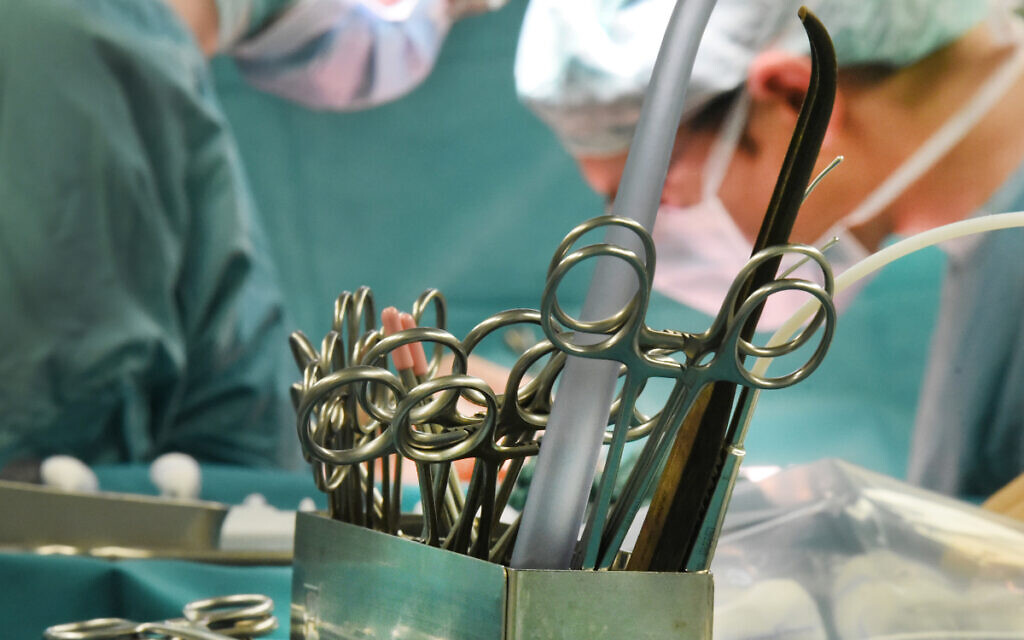Poll shows Jews more likely than UK average to carry organ donor card
Research conducted by new communal group shows 47 percent have opted in, as Chief Rabbi poised to make key announcement on the issue
A survey of more than 1,100 British Jews has shown that they are far more like to carry an organ donation card than the national average, despite being confused as to when donation is permitted under Jewish law.
The research, conducted by a new London-based group called Jewish Organ Donation Association UK (JODA), showed that 47 percent of Jews have opted to donate, compared to the national average of 37 percent.
However, it also showed “widespread confusion” among British Jews over the ethics of organ donation with regards to Jewish law, which was described by Jewish clinicians as “worrying”.
Get The Jewish News Daily Edition by email and never miss our top stories Free Sign Up
The survey showed that 53 percent thought that organ donation was allowed by Jewish law only under certain circumstances, whereas ten percent said it was always allowed, 17 percent said it was never allowed, and 20 percent did not know.
The findings come just months before the UK switches to an opt-out system, under which anyone who dies who did not opt-out of organ donation will be assumed to have consented. The current system requires donors to opt-in.
JODA is a new group set up this month by two senior clinicians at the Royal Free Hospital, as well as a former journalist turned marketing executive. All three are members of Borehamwood and Elstree Synagogue.
They include Eddie Hammerman, who once worked for the BBC and TalkRADIO, consultant anaesthetist Dr Marc Wittenberg, and Richard Shoub, a consultant in intensive care medicine and anaesthesia at Barnet Hospital.
Schoub has been the clinical lead for organ donation at the hospital for ten years and has lectured extensively on the topic to both medical and lay audiences.
The Royal Free survey on Judaism and organ donation, which is still ongoing, is already the largest of its kind to have ever taken place in the UK and the results will be presented at the British Transplant Society’s annual congress in March.
More than a third of respondents said they defined “death” as when somebody’s heart stops beating, despite the medical definition of death being “brain death”. Almost one in five respondents said they did not know when death was defined.
JODA said the poll also showed the prevalence of “myth” around donation – nine percent thought the body had to be “buried whole for admission into the next world,” 11 percent thought it was “prohibited to desecrate a dead body” and 13 percent thought taking organs after brain death amounted to murder.
A spokesperson from the office of the Chief Rabbi said: “Over the course of the last 18 months, we have been working extremely closely with NHS Blood and Transplant as well as the Human Tissue Authority, to seek a suitable accommodation for those in the Jewish community concerned about the upcoming changes to the organ donation system in England. We hope to be able to make a positive announcement in the coming weeks.”
Despite the confusion, 76 percent said they would agree to donate a family member’s organs if they were on the NHS Organ Donor Register, and 52 percent said they would agree to do so even if their family member was not registered. Only ten percent said they planned to opt-out under the new system.
“The response to the survey has been phenomenal and incredibly moving,” said Hammerman. “It has highlighted the huge interest in this issue and we can see significant confusion related to organ donation.
“We hope that by garnering UK Jewish views for the first time and understanding where the information gaps are, we can help inform the debate with valuable and clear guidance.”
He added that it was “worrying” that there still seemed to be myths around what Judaism prohibits, including believing that people need to be buried with their body intact for the Messianic era, or to be buried whole in order to be burying in a Jewish cemetery.
“A lot more work needs to be done to help inform communities about the Jewish position on organ donation so we can help saves lives,” he said.
Dr Wittenberg, who has a special interest in transplant, agreed that the survey showed “a need to improve the knowledge around the process of organ donation” amongst both lay members and religious leaders.
“Many respondents said they would be willing to donate their organs but feel held back by the lack of religious guidance,” he said. “This means that there are people in desperate need of an organ transplant who are potentially missing out.”
He added: “This survey, together with the imminent change in the law, is an ideal opportunity to educate the Jewish community about organ donation with a view to more people being able to receive the precious gift of an organ transplant.”

Thank you for helping to make Jewish News the leading source of news and opinion for the UK Jewish community. Today we're asking for your invaluable help to continue putting our community first in everything we do.
For as little as £5 a month you can help sustain the vital work we do in celebrating and standing up for Jewish life in Britain.
Jewish News holds our community together and keeps us connected. Like a synagogue, it’s where people turn to feel part of something bigger. It also proudly shows the rest of Britain the vibrancy and rich culture of modern Jewish life.
You can make a quick and easy one-off or monthly contribution of £5, £10, £20 or any other sum you’re comfortable with.
100% of your donation will help us continue celebrating our community, in all its dynamic diversity...
Engaging
Being a community platform means so much more than producing a newspaper and website. One of our proudest roles is media partnering with our invaluable charities to amplify the outstanding work they do to help us all.
Celebrating
There’s no shortage of oys in the world but Jewish News takes every opportunity to celebrate the joys too, through projects like Night of Heroes, 40 Under 40 and other compelling countdowns that make the community kvell with pride.
Pioneering
In the first collaboration between media outlets from different faiths, Jewish News worked with British Muslim TV and Church Times to produce a list of young activists leading the way on interfaith understanding.
Campaigning
Royal Mail issued a stamp honouring Holocaust hero Sir Nicholas Winton after a Jewish News campaign attracted more than 100,000 backers. Jewish Newsalso produces special editions of the paper highlighting pressing issues including mental health and Holocaust remembrance.
Easy access
In an age when news is readily accessible, Jewish News provides high-quality content free online and offline, removing any financial barriers to connecting people.
Voice of our community to wider society
The Jewish News team regularly appears on TV, radio and on the pages of the national press to comment on stories about the Jewish community. Easy access to the paper on the streets of London also means Jewish News provides an invaluable window into the community for the country at large.
We hope you agree all this is worth preserving.
-
By Brigit Grant
-
By Laurent Vaughan - Senior Associate (Bishop & Sewell Solicitors)
-
By Laurent Vaughan - Senior Associate (Bishop & Sewell Solicitors)
-
By Laurent Vaughan - Senior Associate (Bishop & Sewell Solicitors)
-
By Laurent Vaughan - Senior Associate (Bishop & Sewell Solicitors)






















